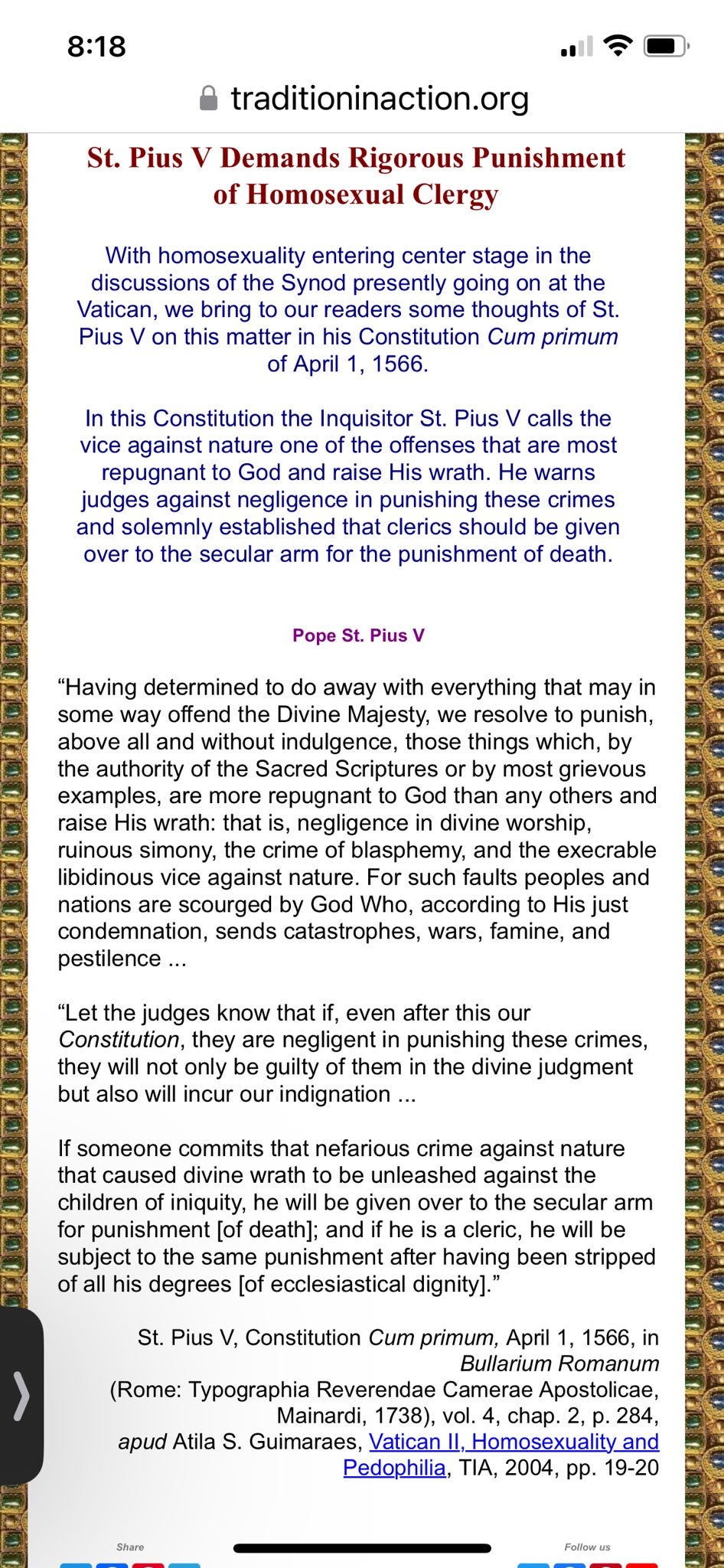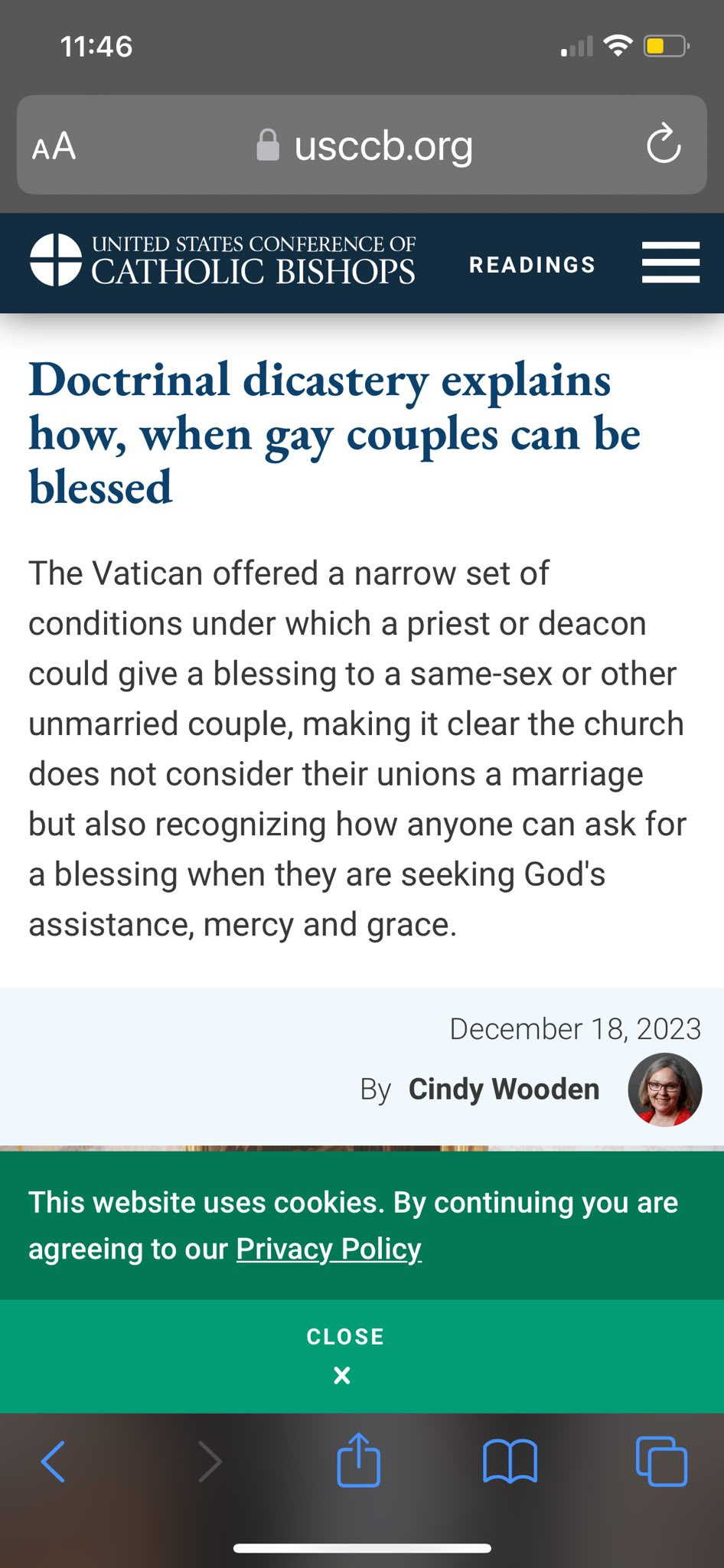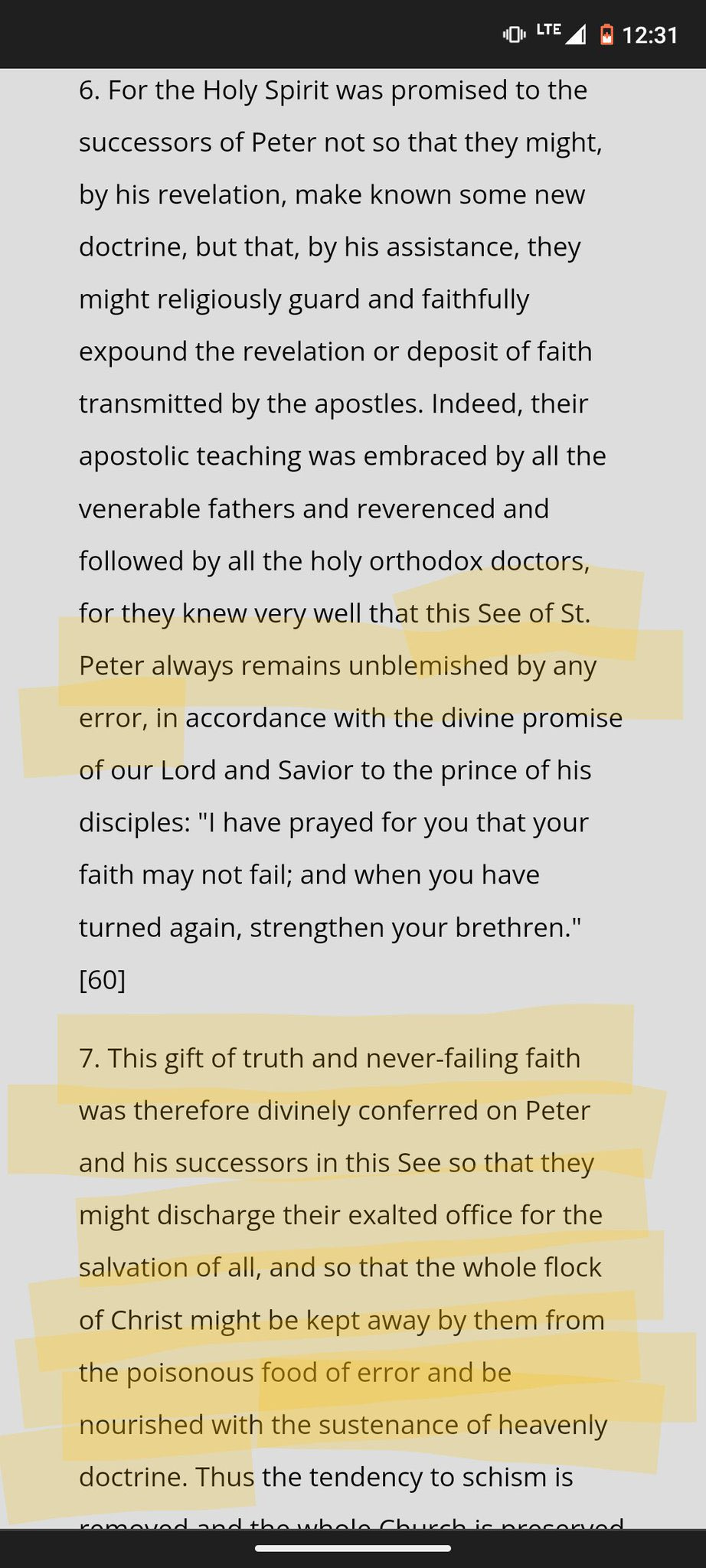The Roman See Has Defected -It's Not Coming Back
Doctrinal and Geopolitical Corruption Combine to Co-Opt
There is a schism in the mind of most conservative and traditionally-minded Roman Catholics, but this is a needed reminder: Roman Catholicism is Francis: Francis is the pope elected by the Cardinals and accepted by the whole world. Roman Catholism is not bygone fantasies of medieval Thomistic disputations or Teutonic crusader knights, but it is Francis’ skittles blessings, clown masses and geopolitical compromise serving the WEF / elite agenda.
No amount of online activities and memes by nerds will save or resurrect “Tridentine” glory days: there is no ethereal “Rome” in the realm of forms you’re *really* united to, divorced from the Vatican in actual Rome. There is no Nestorian papacy in the clouds traditional Catholics are truly, spiritually united to, while in their daily and local parish life, Rome is irrelevant (although they may act this way). As per Vatican 1, the Roman See (IN ROME) is the seat of unity, the source of dogma and great preserver of the truth that cannot defect.
Rome in 1566: skittles = death.
Rome in 2024: Skittles = blessing.
Thus, Roman Catholic morals and dogmas absolutely contradict and change, since the Roman See now rejects the death penalty, has aided in decriminalizing skittles as well now “blessing” some of those unions.
For most Roman Catholics, this results in the notion they can reject what they choose from Francis and his magisterium, and affirm what they deem “infallible.” However, there are at least 5 or 6 places in Denzinger and Vatican 2 which condemn the notion you must only submit in heart and mind to “ex cathedra” or “infallible” teachings (even though those are never actually listed):
“1830 [Recourse to the Roman Pontiff as the supreme judge]. And since the Roman Pontiff is at the head of the universal Church by the divine right of apostolic primacy, We teach and declare also that he is the supreme judge of the faithful [cf. n.1500 ], and that in all cases pertaining to ecclesiastical examination recourse can be had to his judgment [cf. n. 466 ]; moreover, that the judgment of the Apostolic See, whose authority is not surpassed, is to be disclaimed by no one, nor is anyone permitted to pass judgment on its judgment [cf. n.330 ff.]. Therefore, they stray from the straight path of truth who affirm that it is permitted to appeal from the judgments of the Roman Pontiffs to an ecumenical Council, as to an authority higher than the Roman Pontiff.” juridical matters binding: 1683: “And We persuade Ourselves, also, that they did not wish to declare that that perfect adhesion to revealed truths, which they recognized as absolutely necessary to attain true progress in the sciences and to refute errors, could be obtained if faith and obedience were given only to the dogmas expressly defined by the Church. For, even if it were a matter concerning that subjection which is to be manifested by an act of divine faith, nevertheless, it would not have to be limited to those matters which have been defined by express decrees of the ecumenical Councils, or of the Roman Pontiffs and of this See, but would have to be extended also to those matters which are handed down as divinely revealed by the ordinary teaching power of the whole Church spread throughout the world, and therefore, by universal and common consent are held by Catholic theologians to belong to faith.”
In other words, as 1722 later relates, it is a condemned proposition that the Roman Church is only to be followed in extraordinary dogmatic matters: 1722: “The obligation by which Catholic teachers and writers are absolutely bound is restricted to those matters only which are proposed by the infallible judgment of the Church, to be believed by all as dogmas of faith (30 [see n. 1683])” CONDEMNED.
Vatican I stated in Denzinger 1792: “[The object of faith] .Further, by divine and Catholic faith, all those things must be believed which are contained in the written word of God and in tradition, and those which are proposed by the Church, either in a solemn pronouncement or in her ordinary and universal teaching power, to be believed as divinely revealed.”
The decisions of the Holy Office and the Roman Congregations are also binding, including the disciplinary decisions in Denzinger 1698: “Nor do they blush to profess openly and publicly the axiom and principle of heretics from which so many perverse opinions and errors arise. For they repeatedly say that “the ecclesiastical power is not by divine right distinct from and independent of the civil power, and that the distinction and independence of the same could not be preserved without the essential rights of the civil power being invaded and usurped by the Church.” And, we cannot pass over in silence the boldness of those who “not enduring sound doctrine” [2 Tim. 4:3], contend that “without sin and with no loss of Catholic profession, one can withhold assent and obedience to those judgments and decrees of the Apostolic See, whose object is declared to relate to the general good of the Church and its rights and discipline, provided it does not touch dogmas of faith or morals.” There is no one who does not see and understand clearly and openly how opposed this is to the Catholic dogma of the plenary power divinely bestowed on the Roman Pontiff by Christ the Lord Himself of feeding, ruling, and governing the universal Church.”
It is also included in Vatican 2’s Lumen Gentium chapter 25:
“Bishops, teaching in communion with the Roman Pontiff, are to be respected by all as witnesses to divine and Catholic truth. In matters of faith and morals, the bishops speak in the name of Christ and the faithful are to accept their teaching and adhere to it with a religious assent. This religious submission of mind and will must be shown in a special way to the authentic magisterium of the Roman Pontiff, even when he is not speaking ex cathedra; that is, it must be shown in such a way that his supreme magisterium is acknowledged with reverence, the judgments made by him are sincerely adhered to, according to his manifest mind and will. His mind and will in the matter may be known either from the character of the documents, from his frequent repetition of the same doctrine, or from his manner of speaking.”
As my twitter buddy DD noted:
“I have also noticed among many of these types increasing talk of fallible vs infallible teachings of the Pope, and how they are free to reject thr fallible ones. But we knew that this is factually incorrect according to their own dogma. Pastor Aeturnus makes it clear that the Papacy is the guarantor and measure of the true faith for all time, for "Christ prayed that Peter's faith not fail". It is the way we are supposed to know where the true Church is. It is the pope in Rome, united together with his Bishops, sitting in the Chair of St. Peter, who constitutes the standard and measure of the true faith and commands absolute submission. (You must submit mind and will with docility, no one judges the first see, etc). So if there is a body of teachings issued by the Pope that is indeed "reformable" and thus liable to error (not infallible), then being a good Catholic would perforce require submission to fallible teachings, i.e. error. But this runs counter to both the letter and spirit of Vatican I. The entire point of this system is that you follow the Holy See in the person of the Pope because this See is perpetually unblemished by error. That is the meaning of the perpetual indefectibility of Rome. But if we concede that Rome has or could be blemished by error (muh infallible papal statements I'm free to ignore), then we contradict infallible dogma, and embracing this contradiction collapses the entire papal system.”
Although fanatical religionists will never consider the larger power blocs that are really behind the changes in dogma, I have reviewed a recent academic publication from University of Chicago by Michael Graziano, Errand into the Wilderness: The CIA and the History of Religion. The book details the long history of OSS and CIA recruitment and use of religious figures and priests, as well as the Vatican for soft power, espionage, compromise, and religious engineering. See this video analysis of the book.
This is a note taking post: in coming posts I will continue to discuss theology and my ideas, as well as document geopolitical relationships, including more associations between foundations, think tanks, NGOs, churches and the state, with an eye to highlighting how the world really works for the benefit of readers and viewers. This will also focus on all kinds of operations and strategies, not merely the Orthodox or religious world. Keep in mind we have also done many videos and interviews on this topic on my channels and outlets! For more on there related topics you can purchase my books here.







